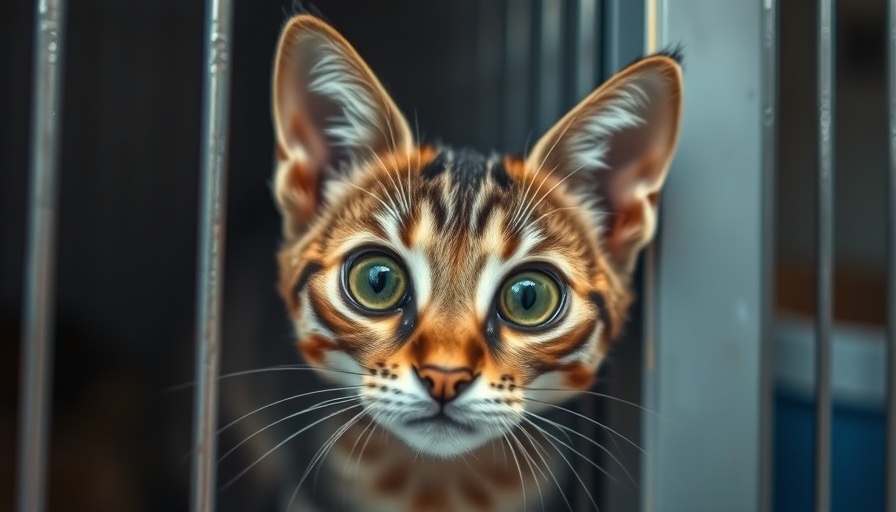
Understanding the Heartache Behind Pet Loss
In recent weeks, Joanne Newbury's heartbreaking story has captured the attention of pet owners across the UK. After the tragic death of her beloved cockapoo, Murphy, due to a violent attack by a larger dog, she has sparked a national conversation about the need for mandatory pet insurance. Newbury argues that no pet owner should have to endure the financial and emotional turmoil she faced after her dog's passing.
Why Compulsory Pet Insurance Matters
Newbury's call for "Murphy's Law" stems from her own harrowing experience of pursuing £3,500 in veterinary fees after her insurance had only covered part of the total cost. She emphasizes that many pet owners may not be in a position to handle such large unexpected expenses. “I wouldn’t want anyone to go through the trauma of this, but also the financial implications—it could ruin someone,” she states passionately.
The crux of her argument lies in the notion that if pet owners were required to have liability insurance, incidents like Murphy's could lead to much smoother resolutions, financially and emotionally. "No one should go through the financial pressure of the other person not having the correct insurance,' Newbury argues, reflecting the worry that pet ownership comes with inherent risks that could have devastating consequences.
The Trauma of Losing a Pet: An Emotional Perspective
Newbury’s experience does not merely highlight financial stress; it also delves deep into the emotional bond between pets and their owners. Having raised Murphy since he was a puppy, she describes him as a "loving little boy" who provided her with companionship, especially during her work-from-home days. This loss has not only left a void in her life but has also created a wake of trauma that pet owners need to acknowledge as an integral part of pet ownership.
Lessons from Murphy’s Tragic Story: A Call to Action
Many pet owners are unaware of the potential ramifications of an incident involving their pets. Some may even believe that their pet is friendly enough to prevent any conflicts. Newbury’s petition for mandatory liability insurance serves as a reminder that accidents can happen, irrespective of a pet's demeanor. As she calls for government action, she emphasizes the importance of societal responsibility regarding pet ownership.
The need for accountability extends to pet owners as well, who must recognize the risks attached to taking their animals out in public. Keeping their pets leashed or contained may not only help keep their pets safe but also protect others and their pets from unexpected attacks, emphasizing the significance of being a responsible pet owner.
The Responsibilities of Dog Owners
In light of Newbury's story, it's essential for dog owners to reflect on what it truly means to be a responsible pet parent. Key obligations include ensuring adequate training, socialization, and, crucially, investing in proper insurance. According to various studies, dog bites and attacks result in thousands of hospital visits each year, presenting a strong argument for comprehensive pet insurance that covers third-party injuries.
As debate on pet policies unfolds, could substantial insurance aid in changing the landscape of pet ownership? Advocating for laws like "Murphy's Law" could provide a safety net for numerous families sharing their lives with pets.
What Lies Ahead: The Future of Pet Insurance Legislation
As Newbury's petition gains traction, it raises larger questions about the future of pet ownership laws. If "Murphy's Law" sees implementation, it could lead to further reforms regarding responsible ownership and safety standards for pet interactions. This change could ensure that pet owners are more likely to take precautions and act responsibly, preventing tragedies like Murphy's from recurring.
In considering the implications of Newbury's campaign, other countries with similar laws may offer useful insights. Countries requiring pet liability insurance, like Germany and some parts of the United States, have successfully decreased incidents of attacks, showcasing a potential model for effective legislation.
As pet lovers, let's take a moment to reflect on Newbury's experience and advocate for a future where all pet owners can face pet-related incidents with peace of mind. It’s time to push for change that safeguards our pets and our pocketbooks.
 Add Row
Add Row  Add
Add 




Write A Comment